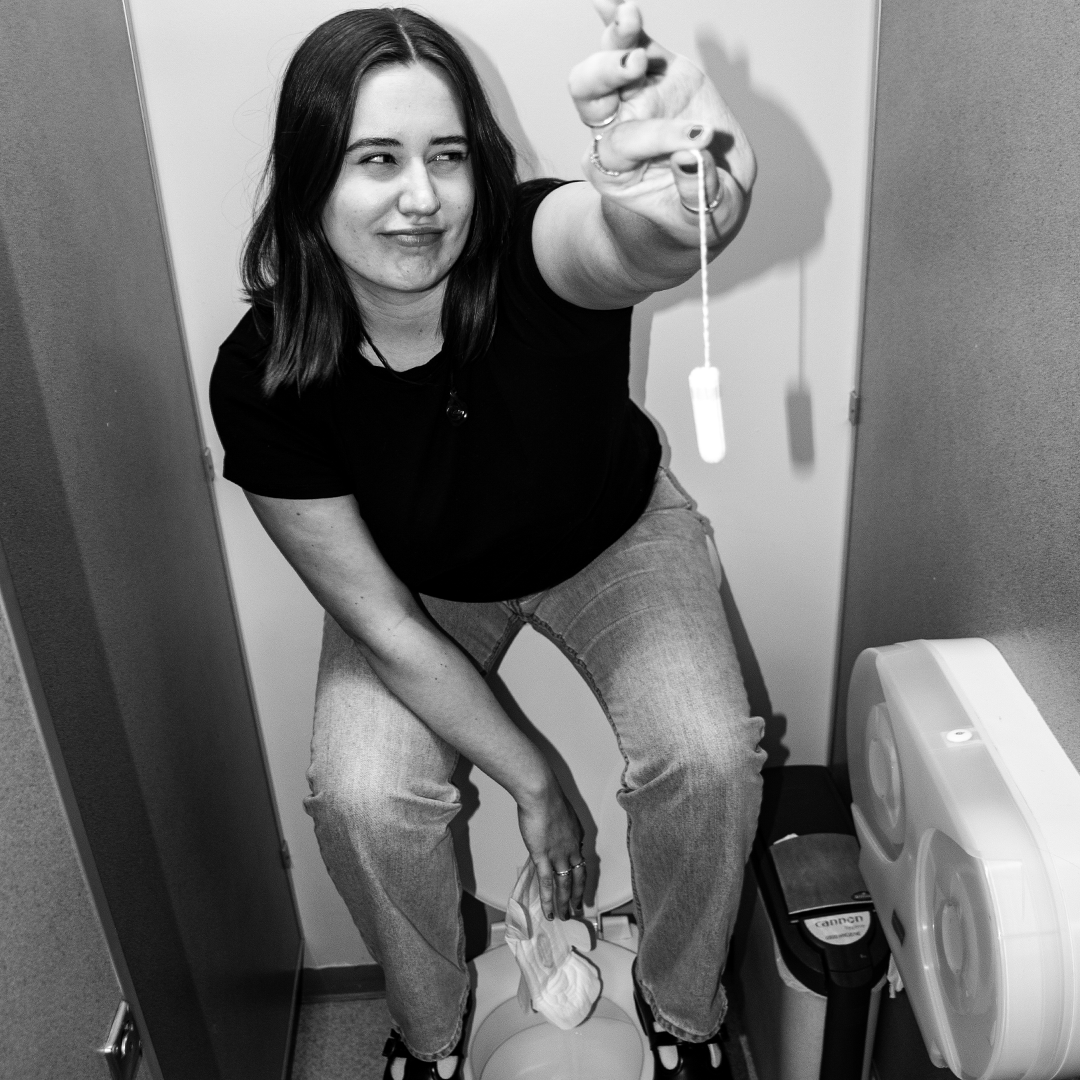Code Red: Period Problems in the Palmy Pipes
Just like I cried trying to get a tampon in at 14, the Palmerston North pipes have a hissy fit too.
My period finished last week, but the entire Palmerston North campus is still bleeding out – cramps and all. Someone call campus security, and tell them to bring a hottie bottle and ibuprofen, cause the sewage system has some unwelcome visitors.
Two weeks ago, the library pipes were blocked due to period products, causing the concourse to flood. It got so bad, the manholes lifted – a bad period can do that to a gal.
But this wasn't a one-off mishap. At least once a week, maintenance finds pads and tampons blocking pipes around campus.
Last year, the Palmy maintenance team spent roughly $750,000 dollars bringing in contractors to unblock the sewage system. Of this, roughly $250,000 was spent on brand new pipes for when it was too difficult to jet-blast the blockage out.
Andrew Morcom, the campus services manager, said unblocking period products used an “extraordinary amount of my maintenance budget”.
With a maintenance budget of roughly $3 million, “you're talking quite a significant chunk of it on removing blockages”.
This issue turns out to be Morcom's single biggest expense. While managing roughly 560 buildings, and 1150 toilets, Morcom says, “I don't have time to be frustrated.”
“If it gets to the point where it's collapsed the pipe, because the back pressure collapsed the pipe, then we have to dig the whole thing up.”
“Mostly we manage to clear it using the jet, or the plumber manually clear it, which isn't a pleasant job for them.”
With dedicated bins in each woman's toilet, you’d think not flushing pads and tampons is common sense -- clearly not. Despite the weekly plumbing issues, there’s been no callout asking students to stop, or posters put up in bathrooms.
Morcom said the issue occurs in most buildings, with The Library and Student Centre as problem areas. They've also unblock products from the Refectory and St Geoffrey Peren Building.
After the rubbish is jet-blasted and broken up, the waste flows to Palmerston North’s treatment plant, and eventually discharges into the Manawatū River.
Morcom says most water treatment facilities aren’t equipped to deal with this, as they’re designed to remove human waste and toilet paper, not expandable cotton products.
And while our campus deals with its own Auntie Flo issues — it seems the entire Palmerston North wastewater system has synced cycles.
In October last year, wet wipes and other non-flushable materials were found blocking pump stations and pipes in Highbury and Awapuni. The city council urged residents to never flush wet wipes, even if the packaging says it's disposable.
Council three waters group manager Mike Monaghan says 90% of wet wipes on the market are made of polyester or polypropylene, and are highly absorbent.
Monaghan says, “They cause blockages when they mix with fats, oils, and grease that go down household sinks.”
“Blockages not only disrupt the public wastewater system but if you flush them down your home or business toilets, they could also impact your own property’s internal plumbing.”
According to the council website, the treatment plant goes through a screening process for things that shouldn't have gone down the toilet or drain – like condoms, tampons, and wet wipes. However, it's unlikely they are able to screen out every product particularly if they have been broken up.
Flowing from the Manawatū River, this trash could eventually flow into the Tasman Sea. And what is our period pain, the fishes could see as their gain. Personal hygiene items can be mistaken for food by wildlife. So, if you're having a shark week craving for seafood, there's a not-so-appetising risk that your flushed tampons could indirectly end up back on your plate.
Tampons can take hundreds of years to decompose, and even biodegradable tampons will remain intact throughout the wastewater network. United Sustainable Sisters — an organisation promoting sustainable menstruation — estimated that over the course of a menstrual lifetime, over 9300 disposable items will end up in landfill per person. And while it's not great to have pads and tampons decomposing in landfill – the bin is the better of two evils.
Comparing Palmy to other Massey campuses, the Wellington operations desk say there hasn't been an issue with sanitary products blocking toilets in at least 20 years. This doesn't mean products aren't being flushed, but they suspect the lack of blockages could be because the campus is on a hill, and the plumbing may be better. They were all surprised about the extent of the issue in Manawatū.
The Auckland team weren't specific about if they face the same issues. However, they urged students to only put pee, poo, and paper down the toilet to avoid sewer overflows.
No one wants a life-long period, so give Palmy a break and toss your tampon or pad in the bin, not the loo.
As my doctor would say, “Have you tried birth control?”

